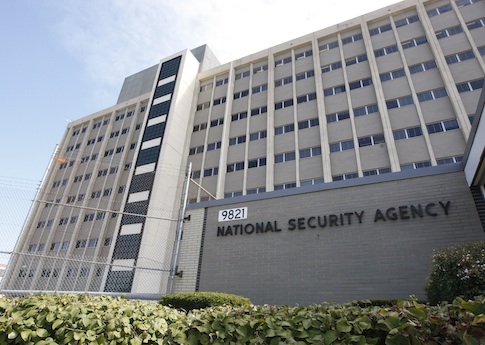The looming expiration of U.S. surveillance authorities could pose a grave threat to national security just as the threat of terrorist attacks is on the rise, lawmakers and U.S. officials say.
Congress faces a midnight deadline Sunday to reauthorize Patriot Act surveillance programs that were enacted in the wake of the 9/11 terrorist attacks. A House bill known as the USA Freedom Act that alters the controversial telephone metadata program failed to pass the Senate by three votes on Saturday. Another measure sponsored by Senate Majority Leader Mitch McConnell (R., Ky.) that would have extended the current Patriot Act provisions until July 31 fell well short of the 60 votes needed to clear a filibuster.
If none of the Patriot Act programs are continued, the National Security Agency (NSA) would no longer be able to access telephone metadata, which includes records such as the duration and time of calls, but not their content. U.S. officials say it is an important tool for connecting the dots on terrorist threats.
Sen. Tom Cotton (R., Ark.) and Rep. Mike Pompeo (R., Kan.) noted in a recent op-ed that the metadata program could have helped to prevent 9/11 if it had been in place before the attacks.
"Many intelligence experts have testified that, had this program existed in 2001, it may have prevented the 9/11 attacks," they said. "One of the hijackers, Khalid al Mihdhar, made seven calls to an al Qaeda safe house in Yemen before the attack. Though the NSA intercepted these calls using other overseas methods, they believed al-Mihdhar wasn’t in the U.S. because they couldn’t obtain the phone number from which he called. We know now that al Mihdhar was in San Diego, preparing for the attacks."
U.S. agencies would also lose other surveillance capabilities if the Patriot Act expires, including the ability to obtain the phone and Internet records of terror suspects, conduct roving wiretaps, and surveil "lone wolf" suspects who might not be directly linked to overseas terrorist groups.
The decreased authorities for counterterrorism agents would come as the FBI is reportedly scrambling to cope with a proliferation of terror suspects inspired by the Islamic State (IS). Two IS sympathizers—including one who was monitored by the FBI—were killed by police in Garland, Texas, earlier this month before they could attack a Prophet Muhammad cartoon contest.
James Comey, director of the FBI, said at a press conference on Wednesday that terror suspects are increasingly using "encrypted platforms" to evade U.S. surveillance.
"I can't stand here with any high confidence when I confront the world that is increasingly dark to me and tell you that I've got it all covered," he said. "We are working very, very hard on it but it is an enormous task."
The House-passed USA Freedom Act—which has the backing of the Obama administration and would transfer metadata storage from the government to telephone companies—appears to have the best chance of passage before the deadline. But it is not without critics.
Sen. Richard Burr (R., N.C.), chairman of the Senate Intelligence Committee, said earlier this month that the House bill provided "illusory protection" because it did not require telecommunications companies to retain data. He has since introduced a bill that would gradually shift the storage of metadata to corporations but require them to inform the government before they alter their data retention policies.
Sen. Dan Coats (R., Ind.), another member of the Senate Intelligence Committee, wrote in a recent op-ed that the transfer of data to phone companies "would require an expansive regulatory system" and might be "operationally useless."
"I am deeply concerned that ending the current program would render our counterterrorism tools less agile and unreliable," he said. "The remaining capability would be less responsive, if not operationally useless."
The Patriot Act fight is likely to last right until the deadline, as proponents of the surveillance programs try to corral supporters during a congressional recess.
"It's all very up in the air right now," said one Senate aide tracking the debate.
